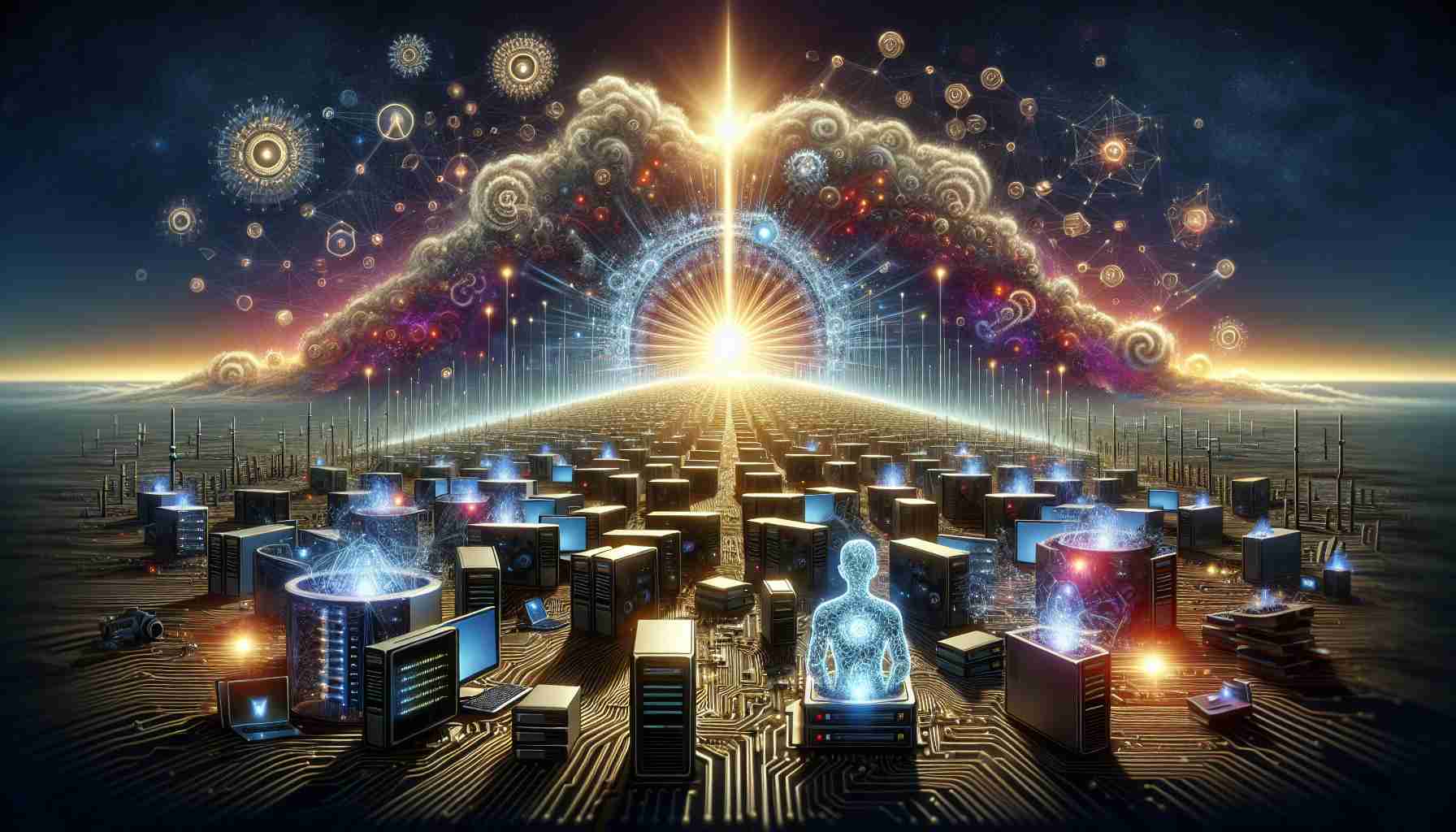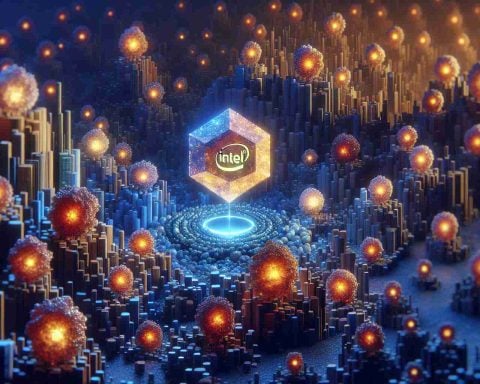In a rapidly evolving technological landscape, artificial intelligence is at the forefront, driving unprecedented changes across various sectors. A recent report highlights the booming hyperscale data center market, estimated to skyrocket to $730.2 billion by 2030. This surge is fueled by the growing reliance on cloud computing, big data, and artificial intelligence, as companies seek cost-efficient and scalable solutions.
Data centers, central to this transformation, face an uphill battle to meet energy demands. McKinsey & Company predicts that by the decade’s end, data center energy consumption could triple, rising to 11-12% of the total U.S. power demand. Consequently, the tech industry is investigating alternative energy sources, such as small modular nuclear reactors, to sustain this growth.
While AI advancements captivate industries, challenges persist. Recently, OpenAI’s widely used chatbot, ChatGPT, experienced a 30-minute outage, affecting over 19,000 users. The company’s latest model, Orion, is reportedly underperforming, highlighting a trend where AI giants encounter diminishing returns from their costly innovations.
As AI reshapes traditional search habits, a study by Yext reveals a shift in consumer behavior: 45% trust AI tools for brand information, and 28% rely on voice assistants. Despite Google retaining a strong position, platforms like Instagram and TikTok are becoming popular search alternatives among younger audiences.
Amidst these developments, Apple Inc. (NASDAQ:AAPL) stands out, maintaining investor confidence. With continued investment in AI technologies and a robust silicon strategy, Apple remains a formidable player in the AI domain. However, for those seeking higher, more immediate returns, other AI stocks may present more lucrative opportunities.
The Secret World of Hyperscale Data Centers: What’s Beyond the Numbers?
The rise of hyperscale data centers is creating ripples beyond technology that are affecting people and communities in unexpected ways. As the market soars toward an estimated $730.2 billion by 2030, the implications of this growth extend far beyond business and into daily life.
Interesting Facts and Controversies
One lesser-known fact is that the expansion of data centers is contributing significantly to local economies. These massive infrastructures provide jobs, not just in construction, but also in ongoing operations and maintenance. Data centers are often located in rural areas where land is cheaper, bringing technology-based opportunities to places they might not otherwise reach. However, this boom can lead to controversies, particularly when it comes to environmental concerns and resource allocation.
Advantages
From an environmental perspective, some data centers are pioneering the use of sustainable practices and renewable energy sources, like solar and wind, which can set a precedent for other industries. The integration of smart cooling systems and energy-efficient hardware design is also helping to mitigate their carbon footprint.
Economically, the presence of such data centers can drastically increase local tax revenues. These funds can be put into improving community services, infrastructure, and schools. Furthermore, the rising demand for data processing can incentivize technological advancements and skill development in regions that host these centers.
Disadvantages
Despite the economic benefits, the negative impact on energy consumption cannot be understated. The prediction by McKinsey & Company that data center energy demands could triple by the end of the decade highlights a significant concern. This spike could lead to increased energy costs for local communities and strain existing infrastructures. Moreover, the reliance on data centers raises concerns about information security and privacy, as colossal amounts of sensitive data are stored and processed.
Impact on Human Behavior and Society
The spread of AI and hyperscale data centers is fundamentally altering human behavior. With around 45% of consumers relying on AI tools for brand information, and 28% integrating voice assistants into their daily routines, human interaction with technology is becoming more intuitive and seamless. However, the question remains: Are we becoming too dependent on these technologies?
Advantages for Global Communities
Globally, these advancements mean greater connectivity. Developing countries, in particular, have the opportunity to leapfrog technological gaps, allowing them to integrate more swiftly into the digital economy. However, there is a risk of increasing economic disparity if these countries cannot afford to invest in the necessary infrastructure.
Disadvantages to Global Equity
Tech giants’ control over AI and data center infrastructures also raises concerns about monopolistic behaviors, potentially stifling innovation and enforcing unfavorable terms on smaller players and developing nations.
Related Questions and Answers
– How do hyperscale data centers affect local water resources?
Data centers often require substantial water use for cooling purposes, which can strain local water resources, particularly in arid regions. Communities and companies must find a balance to ensure sustainability.
– Are data centers a sustainable solution for the future’s digital demands?
While they are necessary for handling future digital loads, their sustainability depends on continued advancements in energy efficiency and renewable energy sources.
For further insights into the emerging technology landscape, you might explore websites like McKinsey & Company for research and data-driven perspectives, or CNBC for the latest in business news.
As we navigate this rapidly changing world, balancing growth with sustainability and ethical considerations will be crucial to leveraging the full potential of hyperscale data centers.






















